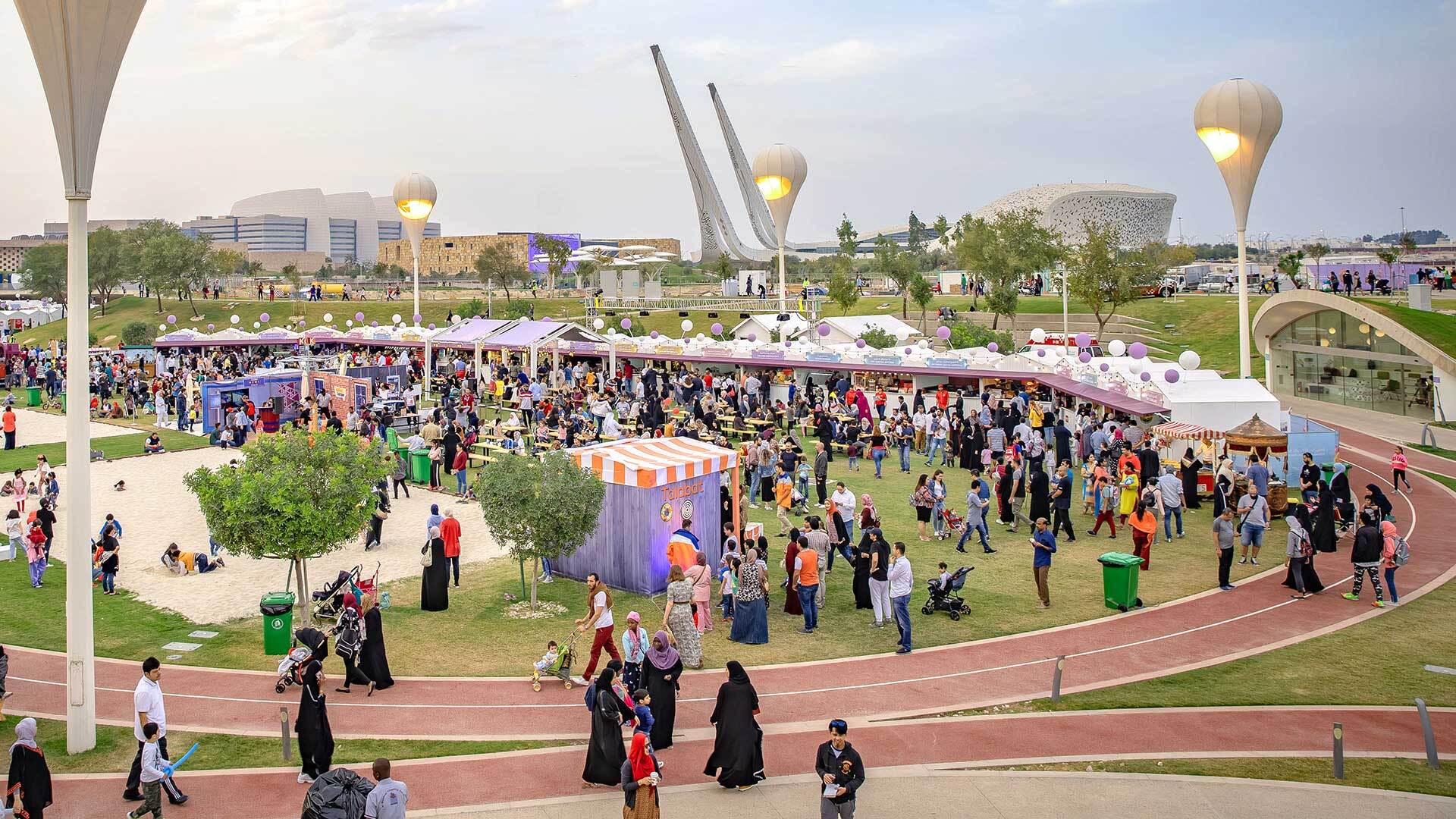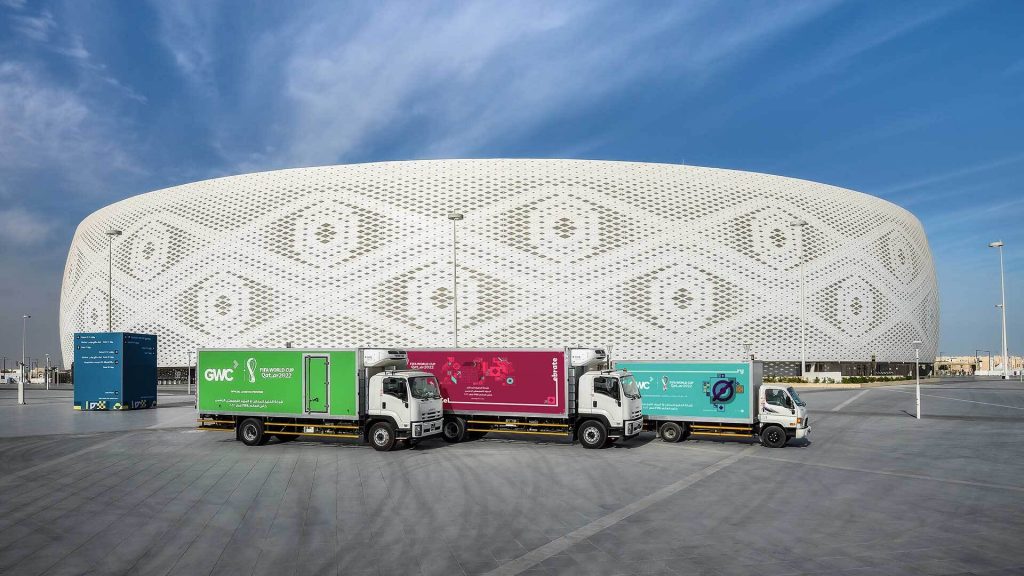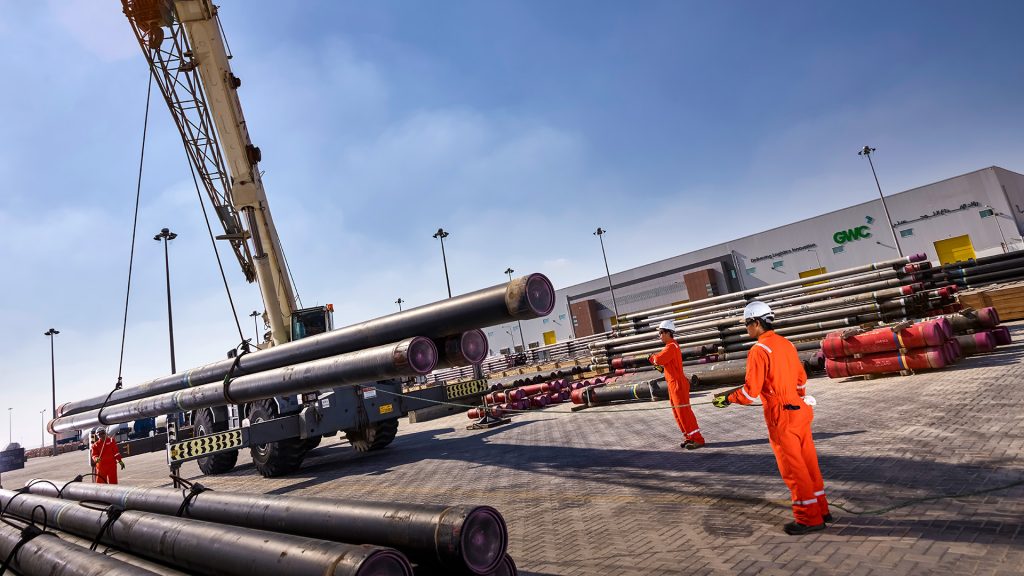
How To Feed A Desert Nation
Qatar is the most food secure nation in the Arab world, despite relying almost entirely on imports. How do they do it? Logistics.
“Your perception of the Middle East as an arid, desert environment is correct,” says Ranjeev Menon, Group CEO of GWC, Qatar’s leading logistics provider. Estimates vary on how much of its food Qatar imports, but it’s in the region of 80-90%. And yet, even while global supply chains are stretched to breaking, the peninsular country retains its position as the 24th most food secure nation in the Economist’s Global Food Security Index, making it the most food secure nation in the Arab World, and more food secure than Australia, Greece, and China.
How does a nation so heavily reliant on imports become more food secure than major agricultural economies? Logistics.
Maintaining the cold chain
Key to Qatar’s food security is the cold chain: Maintaining an unbroken link of refrigerated and frozen storage from a shipment’s point-of-origin to its final destination at a restaurant or supermarket.
Cold chain logistics are the lifeline of global food supply, but in Qatar, temperatures get to over 50˚C, so it’s doubly important. GWC’s warehouses have cooling facilities to maintain temperatures all the way from -25˚C up to an ambient +25˚C. And it all has secondary power sources just in case the rock-solid national grid goes down. The warehouses even use wind catchers, a remarkable feat of ancient Persian engineering, to control the air flow, maintaining indoor temperatures up to 20˚C cooler than the scorching summer outside.
This precision temperature control gives GWC the flexibility to supply fresh fruit and dairy to supermarkets, chicken to KFC, or fresh oysters to one of Gordon Ramsay’s St. Regis Complex hotels. The only difference is timing, you might keep fries for Burger King for a month, but Gordon Ramsay’s oysters will be on a customer’s plate 12 hours after they were caught off the English coast.

Precision planning
This potent combination of flexible infrastructure and precision planning is what keeps Qatar fed even when crisis hits. A lot of Qatar’s food supplies came across the border by road from the UAE and Saudi Arabia. But these routes dried up during the Gulf diplomatic crisis of 2017, when some Gulf Cooperation Council (GCC) states temporarily ceased trading with Qatar.
Tasked with keeping the nation’s shelves stocked, GWC did over 400 air freight moves in that first month. Combined with a recently expanded seaport, the company was able to pivot shipping lines into Asia, Europe, and the Indian subcontinent.
“It was a challenging time,” admits Menon. “It was good preparation for the Covid-19 pandemic.” The crisis catalyzed a permanent shift to a diversified food supply base, one that remained robust even as global supply chains faltered.
Just as crucial to keeping supermarkets stocked was careful management of supplies already in the company’s warehouses. “We operate an expiry-first-out methodology,” says Menon, meaning food closest to expiry is prioritized for delivery, minimizing wastage, and maximizing supply usage. It’s a process made possible by the company’s wholehearted embrace of technology, employing precision warehouse management software that tracks every food item, its required temperature range, and its expiry date.

Stringent safety standards
“GWC adopts a unified company approach to ensure food safety and quality,” explains Menon. “We’re proud to be the first provider in Qatar to become certified to the international ISO 22000 food safety management system standard.”
The company operates a restricted access control system, ensuring only relevant staff can access facilities. It runs regular traceability and mock drills. All employees are trained to international food handling standards. There are regular health and safety audits. And new technology is used to alert warehouse managers to any unexpected fluctuations in temperature, preventing any food from spoiling.
The pandemic has also tightened GWC’s already stringent standards. “Covid-19 has taught us a lot of new things in terms of hygiene,” added Menon, explaining that precautionary measures even extend to ensuring workers are safe and healthy at home.
We’re proud to be the first provider in Qatar to become certified to the international ISO 22000 food safety management system standard.
Ranjeev Menon, Group CEO of GWC
The future of food security
These processes are all integral to Qatar’s National Vision 2030, which details the country’s aims to become more food independent, including boosting domestic food production using high-tech solutions to farm the desert. Menon says GWC is working hard to “make sure the food produced in Qatar is not going to waste at any stage of the supply chain.”
But the more immediate stress test comes in November, with the FIFA World Cup 2022. Qatar’s population is expected to temporarily swell from nearly 3 million to just under 4 million people – who all need feeding. “We’ve been increasing our operational efficiencies and enhancing our capacity for years to ensure everybody’s food and drink is delivered,” says Menon.
It will be a spectacular showcase for the diversified supply lines, precision planning, and exacting safety standards that maintained Qatar’s food supplies during a regional diplomatic crisis, and a global pandemic. If they can withstand a 33% growth in population, Qatar’s future is surely secure.
Read More





